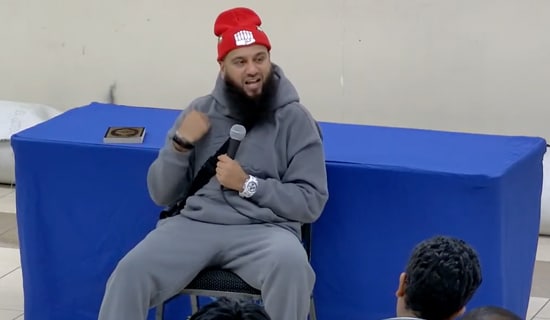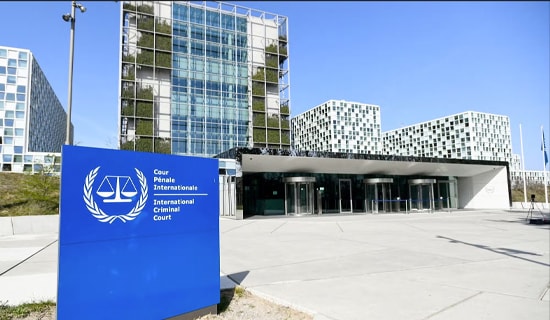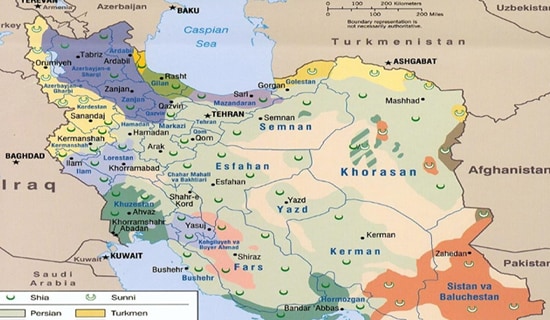Russia This Week is a weekly review by the MEMRI Russian Media Studies Project, covering the latest Russia-related news and analysis from media in Russia, the Caucasus, Central Asia, and Eastern Europe.
Photo Of The Week
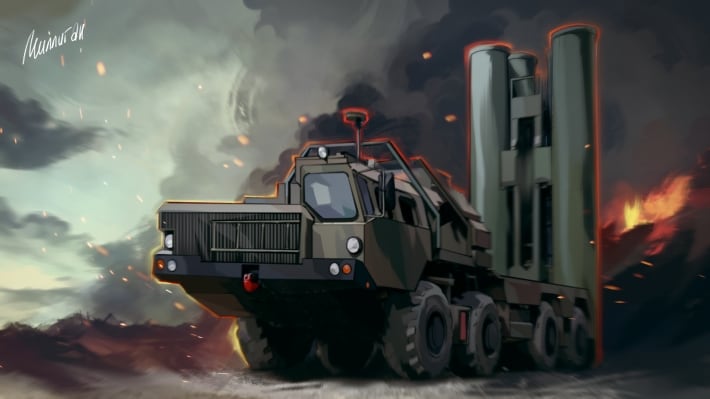
(Source: Rueconomics.ru)
In The News:
- Turkey-Russia Relations;
Vice Chair Of The State Duma's Defense Committee Krasov: 'This Is Not The Case When You Need To Break Off Relations.'
- China-Russia-Relation;
Russian Expert Polonsky: Russia Should Not Forget That Our Interests Do Not Always Coincide With Chinese Ones.
- Eastern Military District
Russian Minister Of Defense Shoigu: The Actions By The United States Are Aimed At Expanding Their Influence In The Asia-Pacific Region And Weakening The Positions Of Russia And China In Southeast Asia.
- INF
Putin: We Assume A Unilateral Commitment On Medium- And Shorter-Range Missiles.
Putin: I Am Concerned That The Tested Missile, According To The Pentagon, Is A Tomahawk, Or A Sea-Based Missile. It Was Reconfigured To Be Land-Based.
- US Plans To Deploy Intermediate-Range Missiles In Asia
Russian Expert Maslov: Such American Steps, Will Justify A Further Strengthening Of The Russian–Chinese Military Alliance
Russian Expert Sivkov: Today China Is Our Friend, But Tomorrow It Could Be An Enemy
- What Happened In Arkhangelsk Region, In Severodvinsk?
Putin: The People Who Died Were Performing Very Important Work For Russia’s Security. The Fact That The Americans Are Testing New Systems Proves That We Have To Focus On This.
An Anonymous Soldier Explains Russia’s Radioactive Missile Explosion To Local Townspeople: Who Told You That The Tests Were Only On August 8? There Were Tests Long Before That.
- News In Brief: Defense; 75th Anniversary Of The Victory In The Second World War
Turkey-Russia Relations
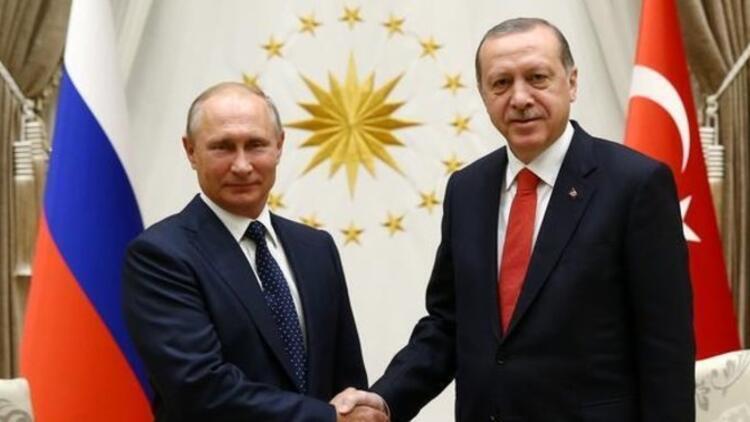
(Source: Hurriyetdailynews.com)
On August 19, the Syrian Air Force attacked a convoy of Turkish soldiers heading, as Ankara claims, to border checkpoint No. 9 in Idlib province. Turkey blamed Syria for the deaths of three servicemen and stated that the incident contradicted "agreements and the spirit of cooperation with Russia."
(Tass.com, August 21, 2019)
On August 23, during a phone call, Russian president Vladimir Putin and Turkish President Recep Tayyip Erdogan discussed various aspects of Russian-Turkish cooperation in the context of stabilizing the Idlib de-escalation zone. According to the Kremlin website, the two leaders agreed to intensify joint efforts to eliminate the terrorist threat emanating from that region and ensure the implementation of the Sochi Memorandum of September 17, 2018. On the same day, it was announced that Erdogan will pay a one-day-visit to Russia on August 27.
(See MEMRI Special Dispatch No. 8241, Leading Turkish Journalist Ergin: Turkish-Russian Relations Face A Stress Test In Idlib, August 26, 2019)
Vice Chair Of The State Duma's Defense Committee Krasov: 'This Is Not The Case When You Need To Break Off Relations'
The Chairman of the State Duma Defense Committee, Vladimir Shamanov, stated: "We have disagreements on a number of positions with Turkey, and they need to be resolved. But in general, this incident should not affect the tone of our relations."
The vice chair of the State Duma's Defense Committee, Andrey Krasov concurred: "This is not the case when you need to break off relations [between Russia and Turkey]."
Director of the Center for the Study of Modern Turkey Yuri Mavashev said: "Cooperation between Moscow and Ankara in the field of military equipment, the purchases of the S-400 and differences over Syria should not be mixed. The escalation in Idlib is unlikely to lead to an acute crisis or a disruption of supplies of the second batch of the Russian missile systems, scheduled for September."
(Tass.com, August 21, 2019)
China-Russia-Relations
Russian Expert Polonsky: Russia Should Not Forget That Our Interests Do Not Always Coincide With Chinese Ones
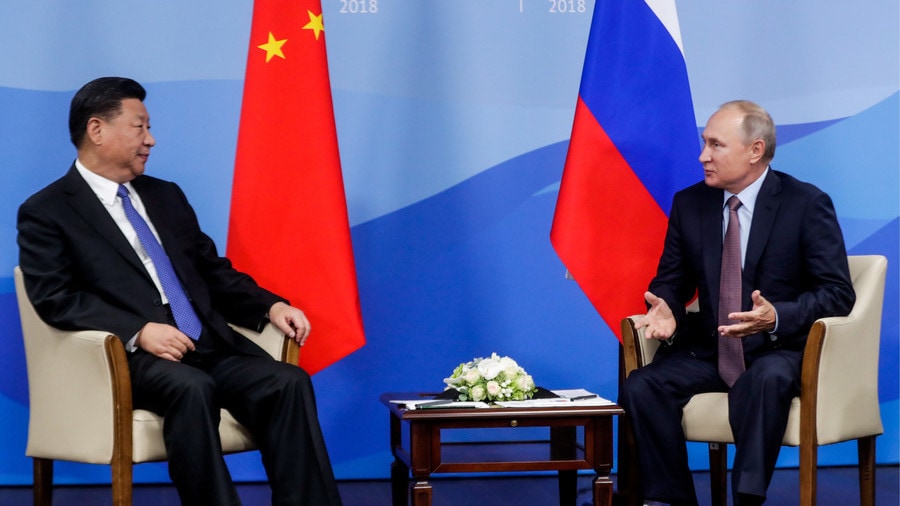
(Source: Rt.com)
An article in the Russian periodical Military Review, by military historian Ilya Polonsky, assessed the status of military relations between China and Russia in view of the prospects that the US will deploy medium and short range missiles in the Asia-Pacific region:
"American policy in Asia-Pacific region is effectively impelling China and Russia towards the creation of a full-fledged military alliance. In case of a further buildup of the American military presence in the region both countries will have no other option. Already, Russia and China are already actively holding joint military drills. Recently, Russian and Chinese air forces conducted the first joint air patrol in the last 16 years, which greatly frightened both Japan and South Korea.
"Currently the Chinese nuclear potential is much less substantial than Russia's or the US', and the Chinese authorities understand full well that China, on its own, is incapable of confronting the aggressive American plans in Asia-Pacific region. Consequently, for China, the creation of a military-political alliance with Russia, seems to be a much more profitable goal, than for Russia itself.
"Our country should not forget its own interests, which, even in the face of good partnership relations with the Celestials [Beijing], are by no means the same as Chinese interests, and sometimes even antithetical to them.
"For Beijing, the most important thing is the assertion of its hegemony in the Asia-Pacific region and Central Asia. And if in the South, the Chinese interests conflict with the interests of the US, which supports Taiwan, Vietnam, and the Philippines, in the North, China competes not only with the US and Japan, but also with Russia. Chinese ambitions in the Far East, in Transbaikalia and Altai, and in Eastern Siberia are no less substantial than in Southeast Asia. Russia should not forget about this either."
(Topwar.ru, August 19, 2019)
Eastern Military District
Russian Minister Of Defense Shoigu: The Actions By The United States Are Aimed At Expanding Their Influence In The Asia-Pacific Region And Weakening The Positions Of Russia And China In Southeast Asia
Tass reported:
The military and political situation in Russia’s eastern strategic area continues to escalate, Defense Minister Army General Sergei Shoigu said at the ministry’s board meeting on Wednesday.
"The actions by the United States and its allies are aimed at expanding their influence in the Asia-Pacific Region and weakening the positions of Russia and China in Southeast Asia," the defense minister said.
In order to respond to existing and potential challenges, 62 organizational measures will be conducted in the Eastern Military District this year, Shoigu said. "The most important of them will stipulate setting up the command of the composite aviation division and the anti-aircraft missile brigade," the defense chief said.
As part of other measures to strengthen the grouping of forces in east Russia, the large submarine Petropavlovsk-Kamchatsky was floated out in March. The sub is set to enter service with Russia’s Pacific Fleet after the end of shipbuilders’ trials in November this year. Overall, Russia’s Eastern Military District will receive 1,743 items of armament and military hardware this year, which will raise the share of its operational advanced weaponry to 53%, Shoigu said.
The Russian defense minister also noted "positive trends in manning the District’s units and formations with contract-enlisted personnel, with more than 4,500 people enlisted in the first half of the year."
Over 120 bilateral command and staff and joint force drills are scheduled for this year involving troops of the Eastern Military District, the defense chief said.
In April-May this year, the Joint Sea-2019 Russian-Chinese naval drills took place in the South China Sea, involving 10 warships and over 3,000 troops, the defense minister said.
"Now active measures are underway to prepare for bilateral command and staff drills in the Sakhalin and Primorye operational areas," Shoigu said…
(Tass.com, August 21, 2019)
INF
Putin: We Assume A Unilateral Commitment On Medium- And Shorter-Range Missiles
On August 19, during his visit to France, Russian President Vladimir Putin said:
"I would like to recall and repeat here in France that we assume a unilateral commitment on medium- and shorter-range missiles. If such attack systems are deployed by the US, we will also have them, but we will not deploy them anywhere unless US systems like this appear.
"Regrettably, we have not yet heard any response to what we have expressed many times in public. We get the impression that they simply do not hear us. That said, I think the Europeans are interested in listening to us and responding appropriately."
(Kremlin.ru, August 19, 2019)
Putin: I Am Concerned That The Tested Missile, According To The Pentagon, Is A Tomahawk, Or A Sea-Based Missile. It Was Reconfigured To Be Land-Based
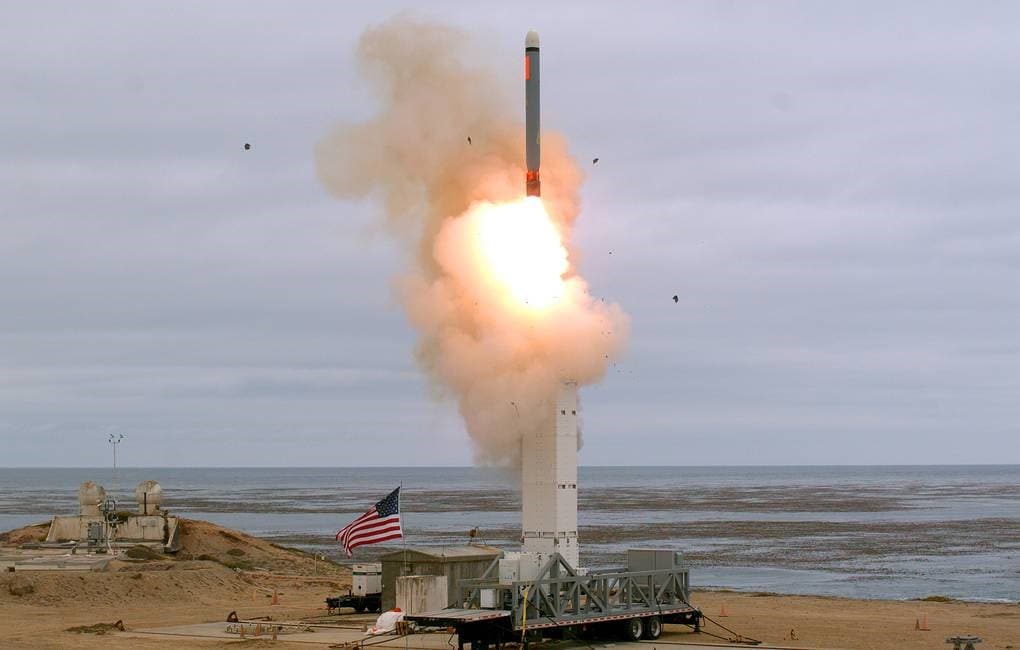
(Source: U.S. Defense Department)
On August 21, during a joint news conference with the President of Finland Sauli Niinistö, Putin was asked about the US testing a cruise missile that was previously banned under the INF Treaty.
Question: "I have a question for both presidents. Several days ago, the US tested a missile that was banned in the past by the INF Treaty. I know that security is a very sensitive issue for Europeans. I would like to ask you if you have discussed or are planning to discuss this new reality during your meeting.
"And another brief question for the President of Finland. Currently Finland holds the presidency of the EU. If the US wants to deploy such missiles in Europe, what will be Europe’s response? Thank you."
Sauli Niinistö: "As far as I understand, the US declared it has no plans to deploy this technology in Europe. Certainly, it is a problem that currently we find ourselves in a situation when agreements that worked in the past no longer work. I think that the problem is felt most acutely in Europe. For this reason, it is important to launch new arms control talks and ensure that they have a positive outcome."
Vladimir Putin: "I can say we are disappointed with what we see. Obviously, testing a ground-based medium-range missile violates the INF Treaty and aggravates the situation in the word in general and in Europe in particular. I will explain what I mean.
"First of all, the Americans tested this missile too fast, too soon after they announced their withdrawal from the treaty. In this sense, we have grounds to believe that the work on this missile (on the 'landing', as this is a sea missile) had begun long before they started searching for a pretext to withdraw from the treaty. To tell the truth, I have not heard the Americans saying they do not plan to deploy these missiles in Europe. If they did say so, that would be good, of course.
"We have talked about this; I have said this many times, and two days ago, I said this in Marseilles. I can repeat it here in Helsinki: Russia will not deploy missiles – although, of course, we will be working on short-range and medium-range systems like this – unless corresponding missile systems produced in the US are deployed in a given region. We have not received any response from our American or European partners so far.
"I am concerned that the tested missile, according to the Pentagon, is a Tomahawk, or a sea-based missile. It was reconfigured to be land-based. These missiles can be launched from existing launchers in Romania or ones that will soon be located in Poland. It only requires a change of software. I am not sure that our American friends will even inform their European partners about the software they use in these systems. For us this means a new threat appearing that we must respond to.
"I agree with the President of Finland that, of course, we need a dialogue on these issues. We have no such dialogue so far. We will take reciprocal steps regarding these actions. We made proposals on such a dialogue some time ago, but we will stick to our point of view: we are ready to discuss this with the Europeans and the Americans, but we will provide for Russia’s security."
(Kremlin.ru, August 21, 2019)
Read More:
- Despite the United States’ withdrawal from the INF Treaty, Moscow is still ready for dialogue on intermediate-range and shorter-range missiles, Russian Defense Minister Sergei Shoigu told the Rossiya-24 TV channel. (Tass.com, August 18, 2019; read the full article)
US Plans To Deploy Intermediate-Range Missiles In Asia
Andrea L. Thompson, the US undersecretary of state for arms control and international security, stated that Washington is consulting with Australia, South Korea and Japan, as it proceeds with plans to deploy intermediate-range missiles in Asia.
(State.gov, August 13, 2019)
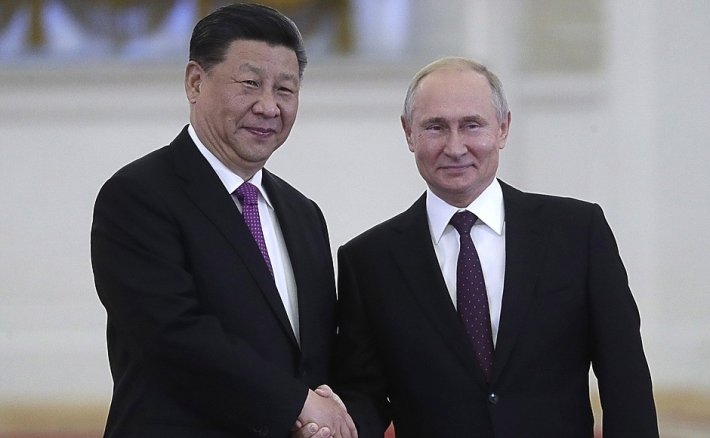
(Source: Rueconomics.ru)
Russian Expert Maslov: Such American Steps, Will Justify A Further Strengthening Of The Russian–Chinese Military Alliance
Alexey Maslov, Head of the Center for Chinese Studies at the Peoples' Friendship University of Russia, said: "It should be understood that if the missiles are deployed in South–East Asia, they will be placed at the existing US military installations in Japan and South Korea, where the THAAD missile defense systems are currently stationed, since this scenario optimizes the Pentagon's expenses for such an undertaking… Definitely, such American steps, will justify a further intensification of the Russian–Chinese military alliance, and, probably, the development of a joint missile defense system, which will cover Siberia, the Far East and the Kuril islands together with Chinese northern and north-eastern territories… If Russian-Chines military alliance really crystallizes, we cannot rule out that other allied countries will join the venture. This in turn will mean a full scale transformation of the whole Asian region."
According to Maslov this will lead to serious counteractions in the region against the US. Moreover, the decision to deploy missiles will fertilize the existing, yet unofficial, military Russian-Chinese alliance. "We have an escalation of an arms race in Southeast Asia, which will lead to a division into two camps, on one side – the Americans and their allies in the region, and in the other – Russia and China," Maslov stated.
(Rueconomics.ru, August 3, 2019)
Russian Expert Sivkov: Today China Is Our Friend, But Tomorrow It Could Be An Enemy
Military expert Konstantin Sivkov opined that American missiles will target not only China but also Russian strategic nuclear forces in Kamchatka region. Yet, according to Sivkov, establishing a joint missile defense system with China would be counterproductive. "Moscow should use its own technology and capabilities, but there is absolutely no need to share it even with China. Today China is our friend, tomorrow it may be not."
The expert thinks that instead of creating a joint missile defense Russia and China should resort to mutual and cooperative measures to counter American hegemony: "The US is trying to achieve world domination. Doing so, they try to roll over Russia and China on the way. Thus, both countries have every reason to take actions in the event of a mutual war against the US – [the actions should concentrate on] getting ready for a multi-faceted conflict, which will encompass various dimensions."
(Vz.ru, August 14, 2019)
What Happened In Arkhangelsk Region, In Severodvinsk?
Putin: The People Who Died Were Performing Very Important Work For Russia’s Security. The Fact That The Americans Are Testing New Systems Proves That We Have To Focus On This
Vladimir Putin during a press-conference with his Finnish counterpart was asked about the incident in the Arkhangelsk Region.
Question: "Russia is a great power, including militarily, as President Niinistö noted in his speech yesterday. And, of course, military powers are responsible for security. Finland is concerned over the events in Arkhangelsk Region, a little more than 400 km from the Finnish border.
"A question for President Putin. What happened in Arkhangelsk Region, in Severodvinsk? What can be done to ensure that events like this do not affect Finland’s security? Perhaps it would be necessary to improve the mechanism for information exchange between Finland and Russia not only on peaceful atomic use, nuclear power plants and civilian facilities, but on closed military facilities as well. What further actions must be taken?"
Vladimir Putin: "I have already said what happened there. Unfortunately, the tragedy in the White Sea took the lives of our experts. This is work carried out in the military sphere, work on prospective weapon systems. We are not concealing this. The people who were injured or died were performing very important work for Russia’s security.
The fact that our partners, including the Americans, test new systems proves that we have to focus on this. I have just answered a similar question. We must think about our own security.
"Speaking about information sharing, our corresponding services are working. According to the reports I have, everything is fine. The neighboring countries did not record any increase in background radiation either. This is obvious to everyone; this is objective data, everything that is happening can be seen from many kilometers, dozens of kilometers away.
"Both military and civilian experts are working at the site of the incident, the site where this tragedy, without exaggeration, took place. Of course (and I believe you will understand me), there are certain restrictions on access to information when military matters are at stake. However, I fully agree with you on security issues; we must establish effective tools and effective system to share such information. I agree with you on this."
(Kremlin.ru, August 21, 2019)
An Anonymous Soldier Explains Russia’s Radioactive Missile Explosion To Local Townspeople: Who Told You That The Tests Were Only On August 8? There Were Tests Long Before That
"On August 17, the website Newsader published a video recording of a conversation between an unnamed Russian soldier and residents of Nyonoksa, where a prototype weapon exploded earlier this month, releasing a cloud of radiation…
"Everyone’s trying to compare Nyonoksa to Chernobyl. I was in Chernobyl in 1986. That was an explosion of immense power. That was people disappearing and disintegrating into molecules. On August 8, people went out onto a pontoon, and everything blew up underneath it. The pontoon flipped, and the people were fatally injured by the objects on it. These were Rosatom workers. They were taken to a special Rosatom hospital. Who told you that the tests were only on August 8? There were tests long before that.
"None of the damage effects of a nuclear weapon has been recorded here. They were testing one of the rocket engines. This engine is powered by nuclear isotopes. There was an emergency and then an explosion — but it was a blasting compound, not a nuclear explosion. As a result, radioactive elements were scattered on the pontoon structures, and the people who were there were exposed to radiation contamination. These people were then taken to Nyonoksa. They had these elements on their clothes, and they were cleaned here.
"Objects from the pontoons, one of which exploded, are washing up at sea. I know of one person who was already planning to visit this place. This would be unwise, because you’d be exposing yourself to the same problems that you’re afraid of now. There would be the same risks if somebody climbed onto the pontoons or took home the objects lying on the beach that at first glance seemed to be safe. That’s why the shore is being guarded. I gathered you all here so you don’t have any problems."
(Meduza.io, August 20, 2019)
Read More:
An employee of the Arkhangelsk regional hospital had previously told Meduza that the doctor whose tissues showed heightened cesium-137 levels was told he may have absorbed the isotope during a recent trip to Thailand. According to our source, FMBA experts told the doctor, "You must have eaten some Fukushima crabs!" (Meduza.io, August 23, 2019; read the full article)
News In Brief
Defense
- Defense chief Sergei Shoigu pointed to NATO ongoing military buildup in Eastern Europe, the deployment of US missile defenses to Poland and Romania, as well as growing cooperation with Finland, Sweden. (Tass.com, August 21, 2019; read the full article)
- Chukotka-bound Tu-160 flights not aimed at bullying US, assures Russian defense chief. Sergei Shoigu added that the US was aware of the Russian aircraft’s flights. (Tass.com, August 18, 2019; read the full article)
75th Anniversary Of The Allied Victory In The Second World War
- Russia has invited US President Donald Trump, North Korean leader Kim Jong-un and UK Prime Minister Boris Johnson to attend the celebratory events timed to the 75th anniversary of the victory in the Second World War (WWII) on May 9, 2020, Kremlin Aide Yury Ushakov told reporters. (Tass.com, August 16, 2019; read the full article)
- Macron to attend 75th anniversary of WWII victory celebrations in Moscow. (Tass.com, July 18, 2019; read the full article)


